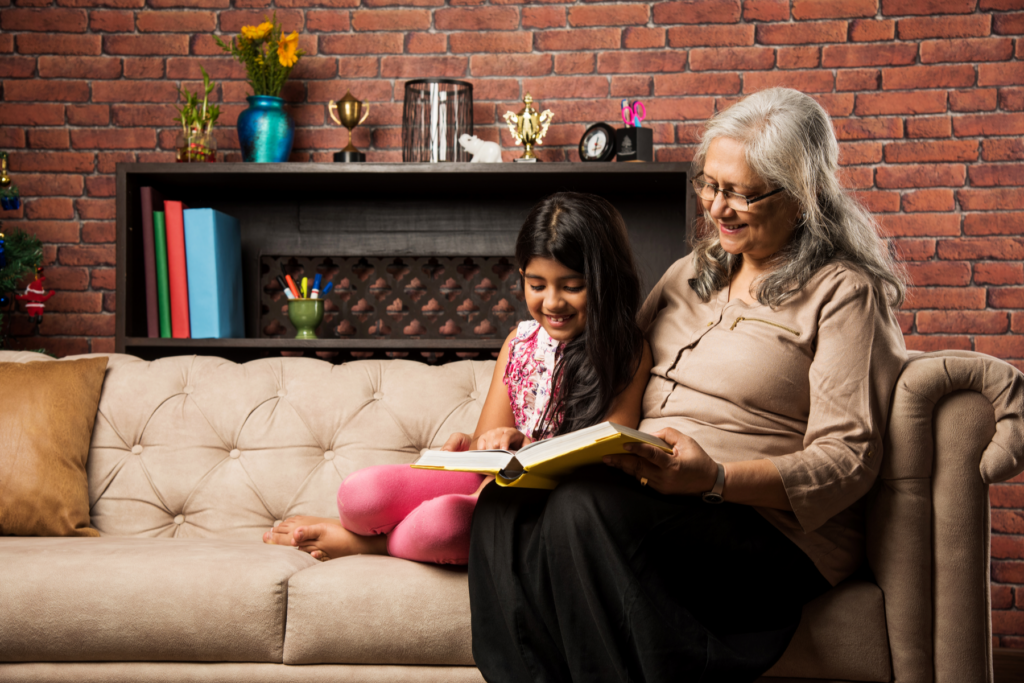
Photo by Stock Image Factory via Shutterstock.com
Since I live thousands of miles away, my country of origin often feels like a dream. I have only visited a few times and much of my knowledge is gleaned through history class and my parents’ seemingly mythological stories. My family, however, is always a part of me. Despite living on the other side of the world, they have made a significant impact on my personality and growth—even more than people I interact with on a daily basis.
And while India is a land of beauty, it is rich with gender disadvantage, unfair beauty standards, and pressures we have finally moved past in India. I address these problems through writing, especially through a very prominent figure in my life: my grandmother, or dodda. “My Dodda In A Day” walks through a day in her life from start to finish. This poem chronicles mundane things, but it includes my grandmother’s stunning insights, based on her knowledge and past experiences.
My dodda was raised in a generation that needed change. By knowing her story through my mother, I felt the urge to write about my grandmother’s past, present and future. While her life differs from that of other Indian women, I incorporated others’ experiences so there is a narrative progression in all areas of South Asian social life. “My Dodda In a Day” bridges the gap between my family, culture, and passion
[Read Related: How my Nani Overcame Racism in the U.K. Through Resiliency and Courage]
My Dodda In A Day
When the clouds part, my grandmother is on the move. Her
locks flap in the wind, she hides the flaps on her skin. She
always finds a way to burrow inside herself and position her limbs in the shadows of the sun. She runs faster each time reality catches up.
India rises from its trout-lipped slumber and her
basket is already filled with buds. Jasmine sugarcoats her
already-strained smile (she’ll have to fix that by noon) and prepares to
string itself on garlands.
Dodda works its milky color to a lather and scrubs until a bumpy rash of rose envelops her brown. Not cream; she’ll try again tomorrow.
At 11, she bustles down flights of stairs, kneading dough until the salt that drips from her
face is enough seasoning and the blood that washes over the hands hidden with henna
flavors dough with sindoor. So she
sweeps a mark across her forehead and prays. Clasps her
hands, asks for a new face.
The clock finally chimes 12 and she
dons four tiffins of lunch and a crimson sari to wash out the weakness. Her
feet are quick. Her
husband’s are quicker.
When he’s through, her wavering teeth feel more like ocean
than stronghold, attacking its own hands over and over and recrudescing
in waves over and over and-
3 PM and she practices teetering spoons on her
palms to prepare for the weight of the world on her shoulders. Her
daughter-in-law is growing grayer and frailer
(men like a little meat on the bones-more cooking for Dodda). Her
niece, who once painted the solar system on her eyelids, let her planets get lost on earth
(the ones who aren’t pretty need to be smart-Dodda can’t marry them off right away). And her daughter who runs at the same time as her every morning to connect with the life she once had (she shuffles down a gated neighborhood in neon Adidas while Dodda turns around to watch for hungry eyes in sandals that peel at the heels).
The nightjar sings in tune with her
landline. Quiet, subliminal darkness unfolds the cloak of nighttime. 13,000 miles
away we are greeting the sun. We prattle about carnivals and
tank tops, about new friends and opportunities, about technology, about goals.
“Dodda, when will you come to see us?”
“Soon, bungaru, soon.”
Then she tucks her
self in with a blanket that steams like rice and dreams her
wishes into our
realities.




